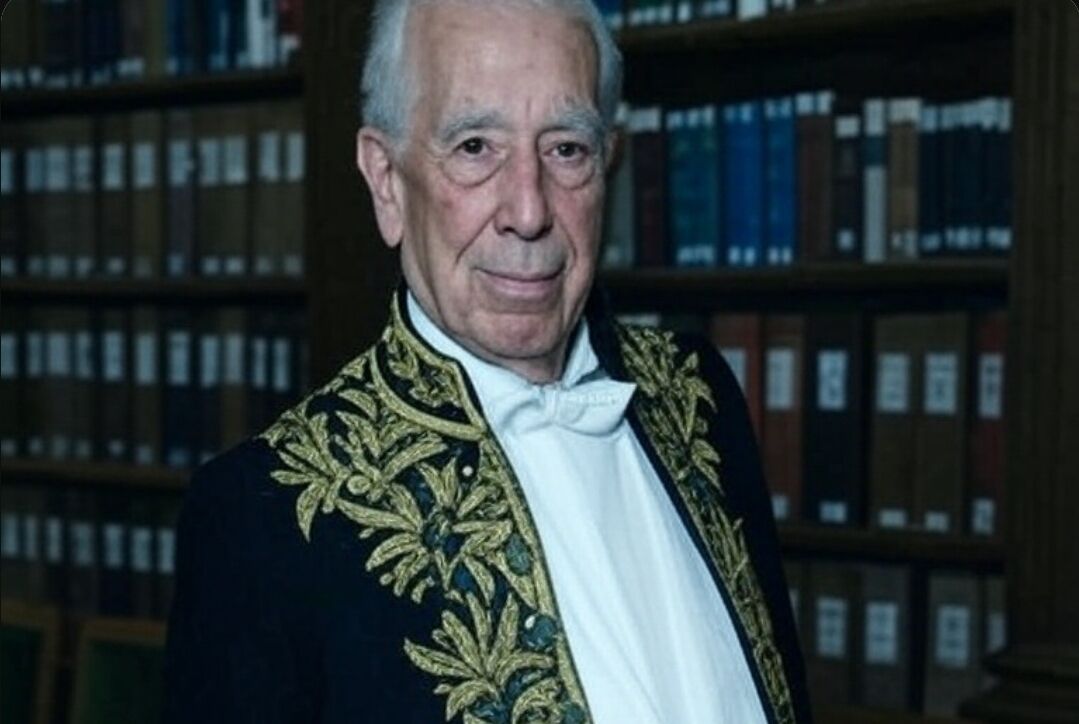Peruvian Novelist Mario Pedro Vargas Llosa, Passes Away at 89
Renowned Peruvian novelist Jorge Vargas Llosa, Nobel laureate and literary icon, passes away at 89, leaving a profound legacy.

Jorge Mario Pedro Vargas Llosa, Renowned Peruvian Novelist, Passes Away at 89
Jorge Mario Pedro Vargas Llosa, the celebrated Peruvian novelist who revolutionized Latin American literature, passed away on Sunday at the age of 89. His children, Alvaro, Gonzalo, and Morgana Vargas Llosa, confirmed the news in a statement, revealing that the literary giant "passed away peacefully in Lima, surrounded by his family."
Vargas Llosa's literary career, spanning over five decades, left an indelible mark on global literature. His novels, often centered on themes of power, corruption, and societal injustice, included notable works such as The Time of the Hero, Conversation in the Cathedral, and The Feast of the Goat. These works explored the darker side of political regimes and social hierarchies, earning Vargas Llosa recognition as one of the key figures in the Latin American literary boom.
In addition to his literary achievements, Vargas Llosa led a colorful and eventful life. He made an unsuccessful bid for the Peruvian presidency, engaged in a long-running feud with fellow writer Gabriel García Márquez, and triumphed as the recipient of the Nobel Prize in Literature in 2010. His literary legacy remains a beacon for aspiring writers worldwide.
Born in Arequipa, Peru, in 1936, Vargas Llosa’s early experiences influenced much of his writing. At just 15, he began his career as a crime reporter, marking the start of his long journey in the world of journalism. At the age of 19, he eloped with his 32-year-old aunt, Julia Urquidi, which was seen as a bold and rebellious act by his father. His 1958 trip to Paris marked the beginning of a 16-year period living in various European cities, including Madrid, Barcelona, and London.
During his time abroad, Vargas Llosa worked as a journalist, broadcaster, and teacher. Despite living outside of Peru, he continued to draw inspiration from his homeland, incorporating its political turmoil and social issues into his fiction.
The Time of the Hero and Controversies in Peru
In 1963, Vargas Llosa published his first novel, The Time of the Hero, which shocked Peru. The novel, based on a murder at the Leoncio Prado military academy—where Vargas Llosa had studied—depicted the subsequent cover-up, revealing the deep-rooted corruption within the military institution. The book caused such an uproar in Peru that it is said that 1,000 copies were burned on the school’s parade ground.
Vargas Llosa’s daring critique of authority in The Time of the Hero set the tone for his future works, establishing him as a writer unafraid to tackle controversial themes.
A Literary Giant of Latin America
Vargas Llosa was part of the literary wave that reshaped Latin American literature in the 20th century, joining other great writers like Julio Cortázar, Carlos Fuentes, and Gabriel García Márquez. His work transcended national boundaries and influenced writers across the globe. His 1971 work, Garcia Márquez: Story of a Deicide, cemented his role in the literary conversation between the new world and the old, even as his friendship with García Márquez deteriorated over time.
Vargas Llosa’s contributions to literature, both in terms of content and his role in the global literary scene, remain influential. His complex portrayal of power structures and human behavior continues to inspire new generations of readers and writers.
Legacy and Nobel Prize Recognition
In 2010, Jorge Mario Pedro Vargas Llosa was awarded the Nobel Prize in Literature, solidifying his place as one of the foremost figures in modern literature. His body of work is revered for its profound insight into the human condition, as well as its unflinching examination of political and societal systems.
Vargas Llosa's passing marks the end of an era in Latin American literature. His legacy, however, will continue to live on through his books and the lasting impact he has had on the literary world.
Remembering a Literary Icon
Jorge Mario Pedro Vargas Llosa’s death at 89 leaves a void in the world of literature, but his exceptional contribution to the field will never be forgotten. His exploration of power, corruption, and societal structures, alongside his fearless approach to storytelling, has shaped the literary landscape. His novels will continue to be read, studied, and cherished for generations to come.


